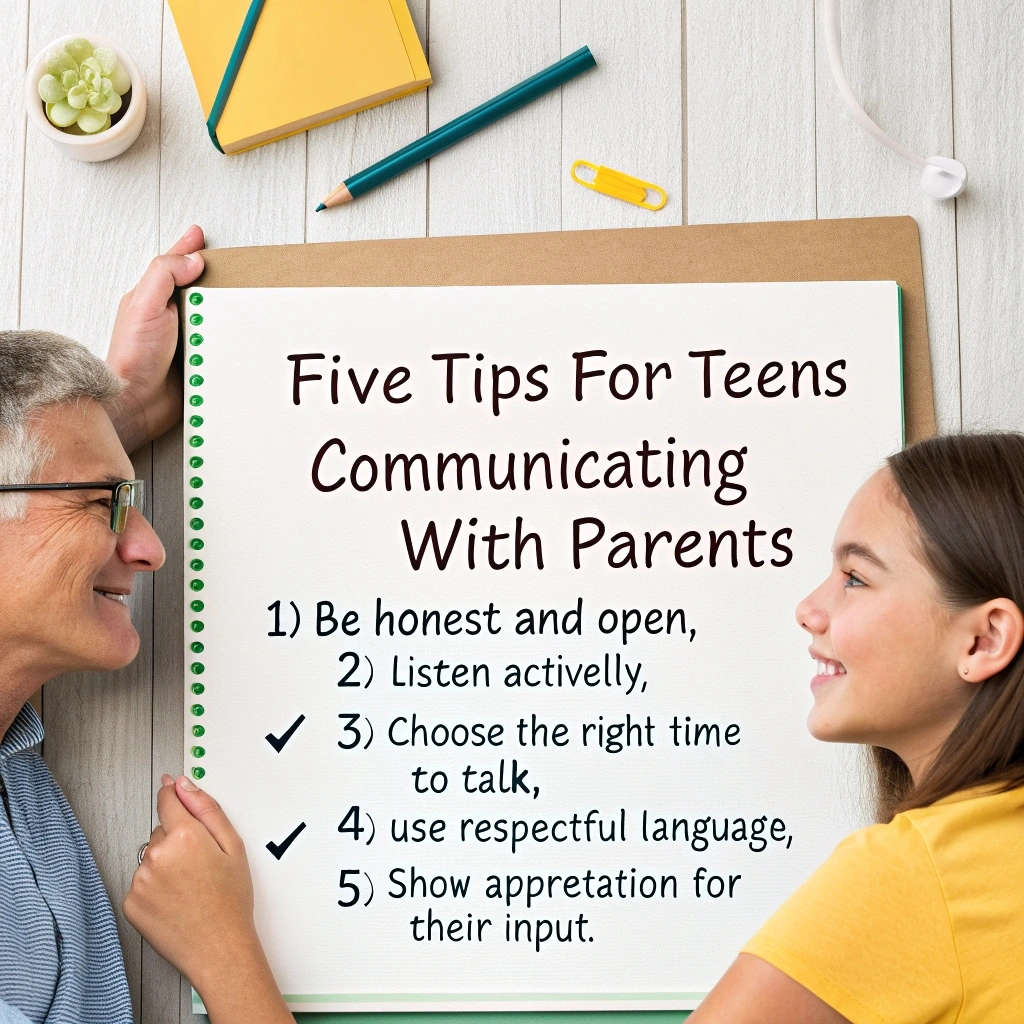Effective communication is key to building trust and understanding between teens and their parents. By focusing on honesty, active listening, and respect, teens can navigate challenging conversations and strengthen their family relationships. In this guide, we’ll explore five essential tips for teens communicating with parents, helping to create a supportive and open dialogue at home.
Five Tips for Teens Communicating with Parents
Good communication is essential for a strong, healthy relationship between teens and their parents. It not only helps with expressing needs and concerns but also fosters trust and mutual respect. Navigating conversations with parents can be tricky at times, but these five tips can help teens communicate more effectively:
1. Be Honest and Open
Honesty is the cornerstone of any healthy relationship. When you share your true thoughts, emotions, and concerns with your parents, it creates an atmosphere of trust. For example, if you’re struggling with schoolwork or facing challenges with friends, telling your parents honestly about what’s going on can help them understand your situation.
Sometimes, it might feel difficult to be completely open, especially when you’re worried about their reactions. However, being upfront about your feelings or mistakes can prevent misunderstandings later on. Instead of hiding information, share it in a way that opens up a dialogue. For example, “I’ve been feeling stressed about school lately, and I’m worried I might fall behind,” can help start a conversation about how they can support you.
2. Listen Actively
Communication isn’t just about speaking; it’s also about listening. Active listening shows respect and lets your parents know that their opinions matter. Avoid distractions like checking your phone or multitasking when they’re talking to you. This shows them that you value their perspective.
To practice active listening, maintain eye contact, nod in agreement, and reflect on what they’re saying by repeating key points. For example, if your parent says, “I’m worried about your grades,” you might respond, “I understand why you’re concerned, and I’m working hard to improve.” By showing that you’re engaged and attentive, you create a space for open and respectful communication.
3. Choose the Right Time to Talk
Timing can greatly affect how well a conversation goes. If your parent is busy, tired, or distracted, it may not be the best moment to discuss something important. Instead of bringing up serious issues when they’re clearly preoccupied, wait for a moment when they’re more relaxed and open to listening.
For example, if you know your parent has just gotten home from work and needs some time to unwind, try waiting until after dinner when they’re less stressed. You could also start the conversation by saying, “I need to talk about something important—can we chat after you finish what you’re doing?”
4. Use Respectful Language
The way you express yourself can affect how your message is received. Avoid using disrespectful language, yelling, or sarcastic remarks, as this can escalate conflicts and make your parent less willing to listen. If you’re feeling upset, it’s okay to express your emotions, but doing so respectfully makes it more likely that your parents will engage in a constructive conversation.
For example, instead of saying, “You never understand me!” try, “I feel like you don’t always get where I’m coming from, and that makes it hard for me to explain myself.” This approach opens the door for dialogue while maintaining respect for each other’s feelings.
5. Show Appreciation for Their Input
Even if you don’t agree with everything your parents say, showing gratitude for their advice and opinions can go a long way in strengthening your relationship. They are likely offering guidance because they care about you and want what’s best for you.
Acknowledge their input with a simple “Thank you for your advice” or “I appreciate that you’re listening to me.” For instance, if they suggest a way to improve your study habits, even if you don’t feel it’s the best solution, a response like, “Thanks for sharing that, I’ll try it and see if it works” can foster a respectful conversation. This not only validates their effort but also makes it more likely that they’ll continue to support you in the future.
Conclusion
In conclusion, Teens Communicating with Parents plays a vital role in creating a healthy and trusting relationship. By practicing honesty, active listening, respect, and patience, both teens and parents can navigate difficult conversations with understanding and care.
Effective communication helps bridge the gap between different perspectives, ultimately fostering a supportive environment for growth and connection.

